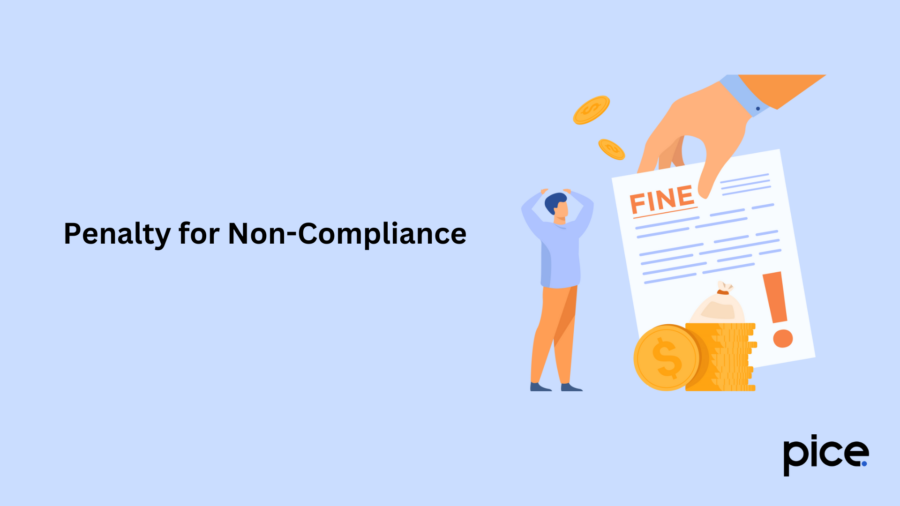CIN Number: Quick Guide to Corporate Identification Number
- 9 Oct 24
- 9 mins

CIN Number: Quick Guide to Corporate Identification Number
- What Is a CIN Number/CIN Code?
- Entities Eligible for a Corporate Identification Number (CIN)
- Components of a CIN
- Significance of the Corporate Identification Number (CIN)
- Documents Requiring CIN Number Mention
- Importance of CIN Number
- Obtaining a CIN: Step-by-Step Process
- Penalty for Non-Compliance
- Changing Your Company's CIN
- How to Track Your Company's CIN?
- Conclusion
Key Takeaways
- CIN: A 21-digit code issued by the Registrar of Companies (RoC) for company identification.
- Key components: CIN covers listing status, activity, state, incorporation year, company type, and registration number.
- Eligible entities: Includes Private Limited, State Government, and Nidhi Companies.
- Importance: CIN ensures legal compliance, tax regulation, business credibility, and easier access to credit.
- Penalties: Non-compliance can lead to a penalty of ₹1,000 per day, up to ₹1 lakh.
The Corporate Identification Number (CIN) is a unique 21-digit alphanumeric code issued by the Registrar of Companies (RoC) to Indian companies. Playing a vital role in business aspects, it offers essential information about a company's registration status and activities.
The entities eligible for CIN are State Government companies, Nidhi Companies, etc. In this blog, we will discuss the components of a corporate identification number and many more.
What Is a CIN Number/CIN Code?

A Corporate Identification Number or CIN is an alphanumeric code which consists of 21 numeric digits. It serves as a unique identification code for any company. Under the Ministry of Corporate Affairs (MCA), the Registrar of Companies (RoC) of different states issues this code to all businesses registered in India. The company can be of any type– State Government Companies, Private Limited Companies, Public Sector Undertakings, etc.
This 21-digit code consists of the organisational details and the company's identification. It is also significant as every form to be provided to the MCA for reports and audits, must consist of CIN.
Entities Eligible for a Corporate Identification Number (CIN)
Here are the entities which are eligible for a Corporate Identification Number:
- One-Person Companies (OPCs)
- State Government Companies
- Companies which the Government of India owns
- Non-Profit Companies under Section 8
- Private Limited Companies
- Nidhi Companies
Components of a CIN
Here are the components of a CIN:
Stock Market Listing Status
The character present at the beginning of the code denotes the stock market listing status of the company. If the company is listed, 'L' will be used and 'U' will be used to denote a company which is unlisted in the stock market.
Categorising Economic Activity
The following 5 numerals denote the economic activity of the company which depends on the undertakings of the establishment.
This is the pattern of the categorisation: Section → Division → Group → Class → Sub-class
Here are some of the standard industry codes:
- Manufacture of clothing accessories and textile garments: 18101
- Retail sale of construction materials: 52341
- Real estate activities either on a contract or based on a fee: 70200
- Dairy farming and cattle farming: 01211
- Freight transport by motor vehicles: 60231
State Code
The following two letters signify the state code of a company's registered office.
Year of Incorporation
Following the state code, the next four numeric digits signify the year of incorporation.
Company Type
The subsequent three letters denote the type of company. For instance, if the company is private or public. Here are some common abbreviations which are used:
- A Foreign Company’s Subsidiary - FTC
- Unlimited Liability (Public Limited Company) – ULL
- Unlimited Liability (Private Limited Company)- ULT
- Non-Profit Licence Company - NPL
- Financial Lease Company (Public Ltd.)- FLC
- General Association Private- GAT
- General Association Public- GAP
- Companies under State Government- SCG
- Companies under Central Government - GOI
- Public Limited Company - PLC
- Private Limited Company - PTC
Company Registration Number
The last six digits of CIN denote the registration number of the company along with the Registrar of Companies (RoC) code.
Significance of the Corporate Identification Number (CIN)
Corporate Identification Number is important for multiple reasons:
- Track Business Activities: A Company Identification Number can be helpful to track every activity of a company– from the company incorporation to the state code. It is essential to provide the CIN irrespective of the type of transactions initiated by your company.
- Unique Identity: Each CIN is different and is distinct from the other companies. This can also be useful for finding out information on all the companies which are registered under RoC.
Documents Requiring CIN Number Mention

Following are the company documents which require CIN mention:
- Invoices
- Notices
- Receipts
- Letter papers
- Every e-form which are present in the portal of the Ministry of Corporate Affairs
- Business letters
- Billheads
- Official publications like financial results, books, journals
- Emails sent to external clients
- Annual reports
Importance of CIN Number
The Corporate Identification Number is significant for the following key reasons:
- Legal Compliance: According to the Companies Act, 2013, every registered company needs to have a CIN. Otherwise, you may have to incur heavy penalties. This can affect the financial status of your company.
- Business Identification: CIN provides a distinct legal identity to your company. It also helps in building a brand reputation in the business ecosystem. CIN also enhances business relations between stakeholders and customers.
- Access to Credit: The CIN makes credit from banks and NBFCs more accessible. Financial institutions need a CIN while you are applying for a loan. If you do not have a CIN, it can be a hindrance to the whole expansion plan.
- Compliance with Tax Regulations: Indian companies need to abide by tax regulations, including TDS and GST. CIN makes it seamless to track such business transactions and in the process, prevent non-compliance fees.
- Corporate Governance: CIN enhances the credibility of a company. Hence, it increases a stakeholder's trust in the company. Moreover, the presence of CIN in all official documents ensures systematic tracking and proper record-keeping.
Obtaining a CIN: Step-by-Step Process
Here is the step-by-step process to obtain a Company Identification Number:
Step 1: Choose a Name
Choose a unique company name which adheres to all Government rules.
Step 2: Decide Company Type
Proceed to select the type of company– Limited Liability Partnerships, Private Limited, etc.
Step 3: Get DIN and DSC
Obtain Digital Signature Certificates (DSC) and Director Identification Number (DIN).
Step 4: Reserve Your Chosen Name
Secure your selected name with the government to guarantee its exclusivity.
Step 5: Gather Important Documents
Prepare documents like Articles of Association and Memorandum of Association. It must outline the rules and goals of your company.
Step 5: Apply and Pay
Submit the application form to the RoC and make the payment.
Step 6: Get CIN
Once the RoC reviews and approves your application, you will receive a Certificate of Incorporation (COI). This confirms the establishment of your company.
Penalty for Non-Compliance

If you do not include the CIN Number on the required documents, it can lead to a daily penalty of ₹1,000. For non-compliance, the maximum penalty can amount to ₹1 lakh.
Changing Your Company's CIN
You are eligible to change the CIN of your company under these circumstances:
- Switch in the Stock Market Listing Status: If your company undergoes a transition in the listing status on the stock market, you need to update your CIN.
- Change in RoC: If the Registrar who supervises the affairs of your company changes, the CIN needs to be updated.
How to Track Your Company's CIN?
Here are the steps to track your company’s CIN:
Step 1: Visit the official website of the Ministry of Corporate Affairs. Then, navigate to ‘MCA Services.’
Step 2: Click on ‘Find CIN.’
Step 3: Choose the type of your company.
Step 4: Select one from the list of options– Inactive CIN/Registration Number/Existing Company name or Limited Liability Partnership name/Name of the old company or Limited Liability Partnership.
Step 5: Provide all the basic details.
Step 6: Mention the CAPTCHA.
Step 7: Finally, click on ‘Search’ to track your company’s CIN.
Conclusion
The Corporate Identification Number (CIN) is a primary identifier that plays a pivotal role in the operational landscape of a company. CIN helps a company adhere to tax regulations and establishes business credibility. This 21-digit alphanumeric also ensures that a company adheres to the legal framework of India.
💡If you want to streamline your payment and make GST payments, consider using the PICE App. Explore the PICE App today and take your business to new heights.
 By
By 

















